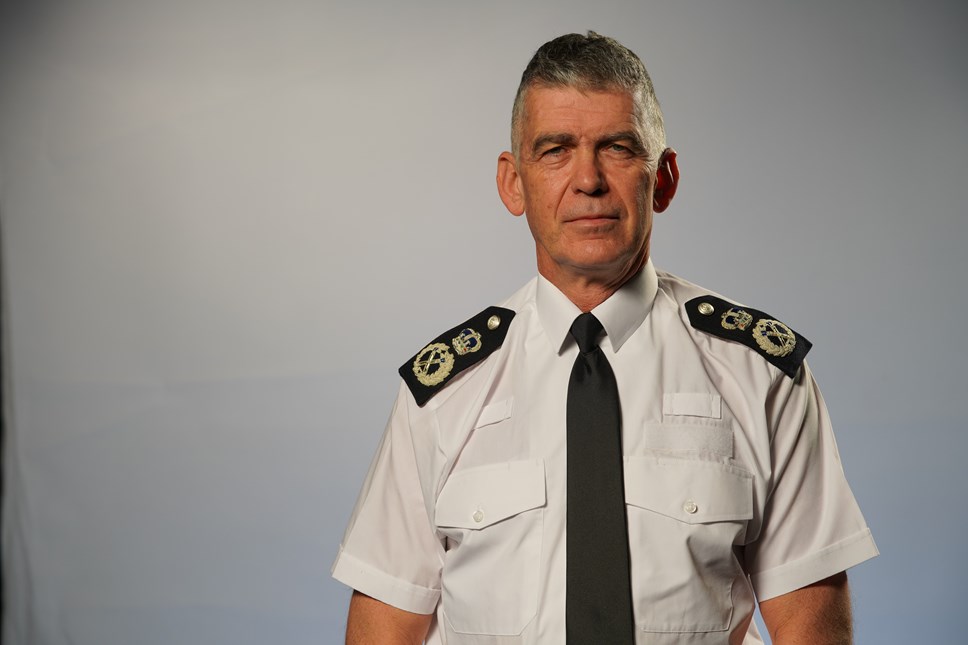
National police response to the Hillsborough Families Report
Widespread changes to policing were made public today as national police leaders release their response to the Hillsborough Families Report.
Leaders from the College of Policing and the National Police Chiefs’ Council have apologised to the Hillsborough Families as part of the national police response to a report by the Rt Revd James Jones KBE on the lessons from the Hillsborough stadium disaster.
The report recommended action from public bodies and government to ensure the pain and suffering of the Hillsborough families could not be repeated. Following its publication in November 2017, the national police response can now be made public after the culmination of legal proceedings and other matters.
Today’s national policing response is a commitment to avoid the failures made during and after the Hillsborough Disaster; embed strong ethical values in the service; and ensure there is humanity and humility in the police response to public tragedy.
Reforms in response to the report include:
- All police forces in England and Wales have signed up to a Charter for Families Bereaved Through Public Tragedy which sets out that police organisations must acknowledge when mistakes have been made and must not seek to defend the indefensible.
- The College of Policing and NPCC have agreed the content of a new Code of Practice on police information and records management to prevent the problems faced after the Hillsborough disaster when records were lost or destroyed. This Code has been submitted to the Home Office for ministerial approval, following which it can be laid before Parliament in accordance with the Police Act 1996.
- The College of Policing’s Code of Ethics – applicable to everyone working in policing – will be revised this year and candour will be a key theme.
There will be a supporting Code of Practice, which chief officers must have regard to, which will state that ‘Chief officers have a responsibility to ensure openness and candour within their force’. - New national guidance for Family Liaison Officers has been issued, incorporating learning from the Hillsborough Families Report, the Grenfell Tower tragedy and the 2017 terrorist attacks.
- The College of Policing released updated disaster victim identification Authorised Professional Practice in August 2018 in direct response to the report, including an explicit statement that the terms ‘belonging to’ or ‘property of the coroner’ should not be used in future disasters.
Chief Constable Andy Marsh, College of Policing CEO, said: “Policing has profoundly failed those bereaved by the Hillsborough disaster over many years and we are sorry that the service got it so wrong. Police failures were the main cause of the tragedy and have continued to blight the lives of family members ever since.
“When leadership was most needed, the bereaved were often treated insensitively and the response lacked coordination and oversight.
“Today’s report explains long-term, and more recent, developments in how the police responds to mass fatality incidents. Hillsborough is a touchstone for long-lasting change in policing and there is a commitment from the leadership in policing to create a modern, dynamic police service which acts without fear or favour, and with integrity and empathy.
“The changes include all police forces in England and Wales signing up to a charter agreeing to acknowledge when mistakes have been made and not seek to defend the indefensible; a strengthened ethical policy which makes candour a key theme; and new guidance for specialist officers supporting families during a tragedy which learnt lessons from the Hillsborough Families Report, the Grenfell Tower tragedy and the 2017 terrorist attacks.
“I would like to sincerely thank the former Bishop of Liverpool, the Rt Revd James Jones, for his dedication and insight which continues to support the police service in undergoing essential reform.”
Mr Marsh added the Hillsborough Families Report is now included in training for new recruits entering policing through the College of Policing’s updated routes, as well as the importance of transparency and being candid when things go wrong.
National Police Chiefs’ Council Chair, Martin Hewitt, said:
“As police officers, we come to work to keep the public safe and as a service, we failed to do this at Hillsborough. I am deeply sorry for the tragic loss of life, and for the pain and suffering that the families of the 97 victims experienced on that day and in the many years that have followed.
“Collectively, the changes made since the Hillsborough disaster and in response to Rt Reverend James Jones’s report aim to ensure the terrible police failures made on the day and in the aftermath can never happen again.
“Police chiefs today are committed to responding to major incidents with openness and with compassion for the families involved. All police forces in England and Wales are signed up to the Charter for Families Bereaved through Public Tragedy. In signing this, they committed to putting the interests of victims and families above any other interest and acting with candour at every turn.”
Contact Information
Antony Bushfield
Notes to editors
- Today’s report specifically addresses the numbered concerns outlined in Bishop James’ so you can see the specific progress made in each area.
A copy of the 2017 report by Report by the Right Reverend James Jones can be found on the Government website.
- The College of Policing is the standards setting body for the police in England and Wales and provides those working in policing with the skills and knowledge necessary to prevent crime, protect the public, and secure public trust. The College supports professional development and shares knowledge and good practice.
- The National Police Chiefs’ Council brings police forces in the UK together to help policing coordinate operations, reform, improve and provide value for money. The NPCC has responsibility for the national operational implementation of standards and policy; co-ordinating national operations and the national police response to national emergencies and commanding counter terrorism operations.
- For media queries please contact the College of Policing press office on 07827 309 361 or pressoffice@college.police.uk
